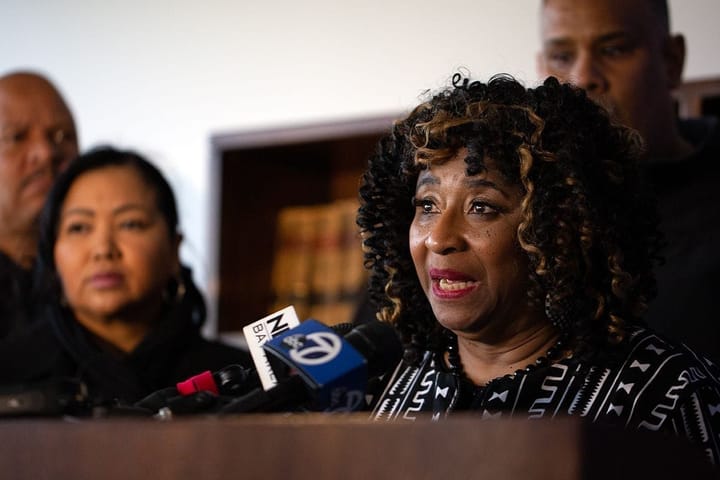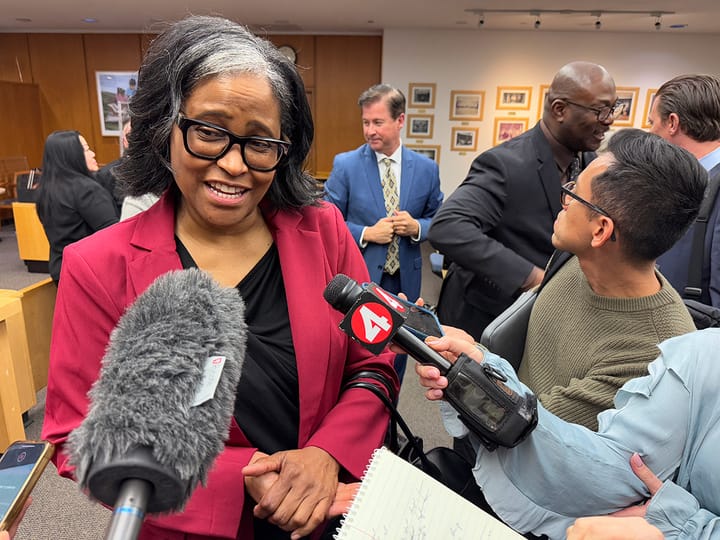Alameda County death penalty cases under review over alleged misconduct
The death penalty audit may be just the start, DA Pamela Price said: Other Alameda County cases "may be implicated."
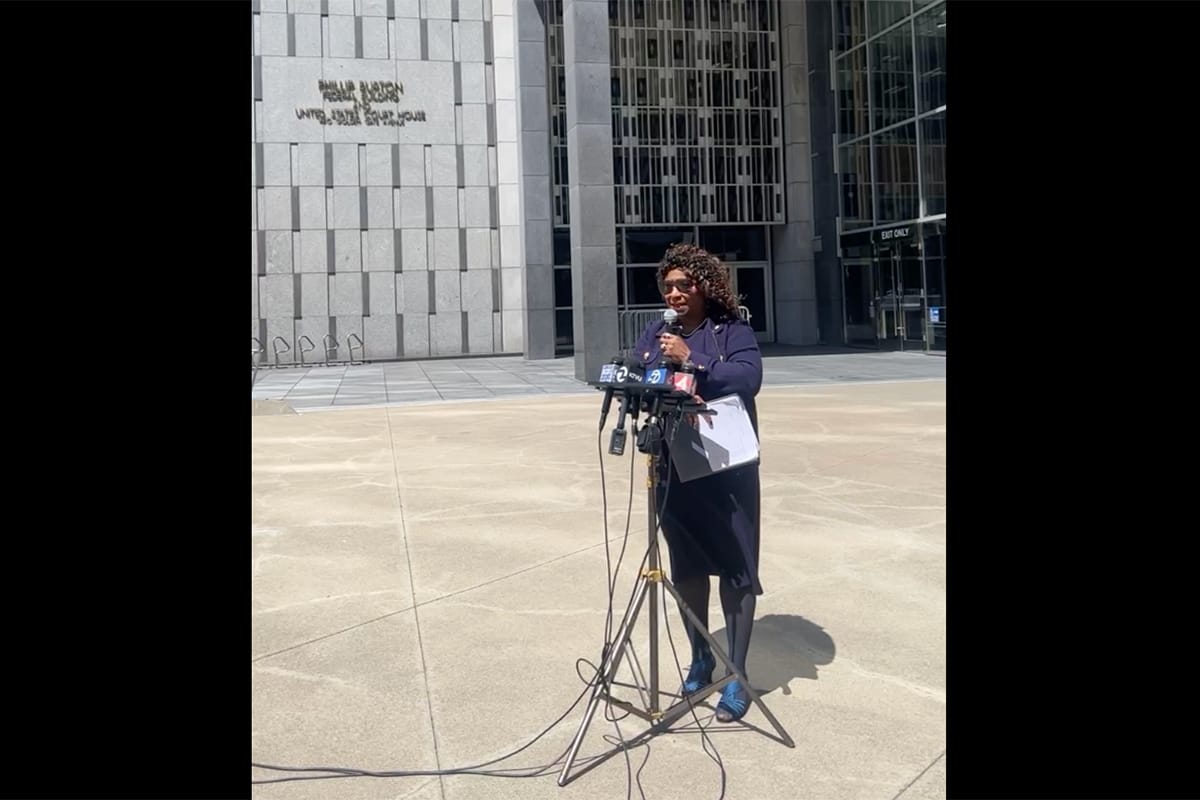
The Alameda County DA's office will review dozens of death penalty cases after the discovery of prosecutor notes from a 30-year-old murder case identifying potential jurors as Jewish or Black.
District Attorney Pamela Price announced the sweeping review Monday outside the Phillip Burton Federal Building in San Francisco.
Price said U.S. District Judge Vince Chhabria had directed her office last month to review all 35 of its death penalty cases, possibly dating back to 1977, "for any potential signs of prosecutorial misconduct in the form of the exclusion of jurors based solely on race."
And the death penalty audit may be just the start, Price said, adding that other Alameda County cases "may be implicated."
"We will address those as we can, as appropriate," Price told the media during Monday's brief press event, which The Scanner viewed remotely.
Read more about Pamela Price on The Scanner.
The Alameda County DA's office also released what it said were "samples of prosecutors' notes" related to "what appears to be the exclusion" of prospective jurors from the 30-year-old murder case.
Some of those notes were about individuals described as Jewish while others included the initials "FB" in reference to Black women ("female, Black").
It was unclear whether any of the notes referenced the same people or how many people had written them.
"She is very pro-union, pro affirmative action, for the oppressed. Lived Oak. all life," one note about a potential Black juror read. "Says race no issue but I don't believe her."
Another note described a Black woman as a "Short, Fat, Troll," adding that she had "seemed put out" by the prosecutor's questions about the death penalty.
"Pro D/P [death penalty] but no way," said a note referencing Jewish heritage.
"I liked him better than any other Jew But No Way," said another. "Must kick."
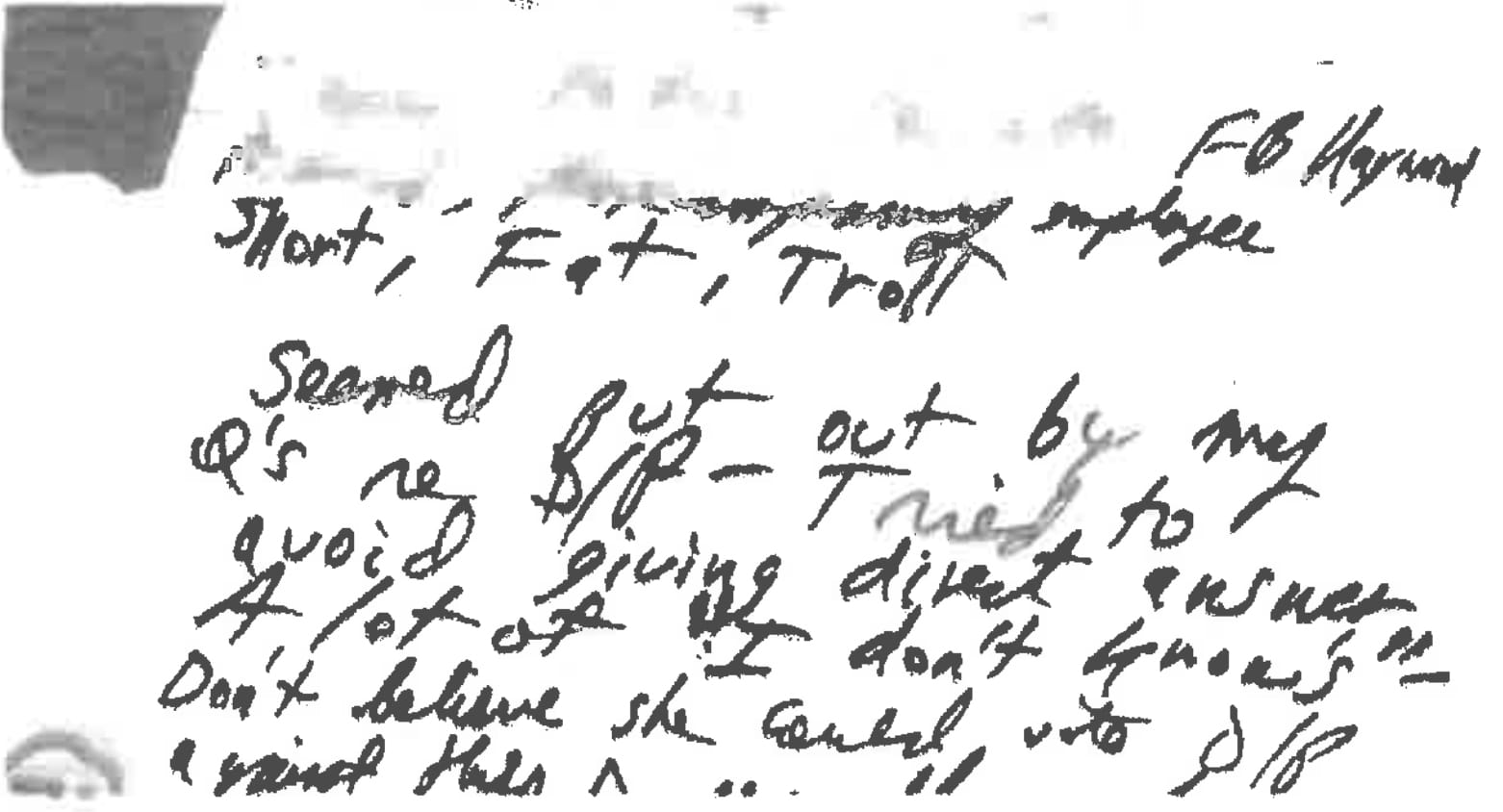
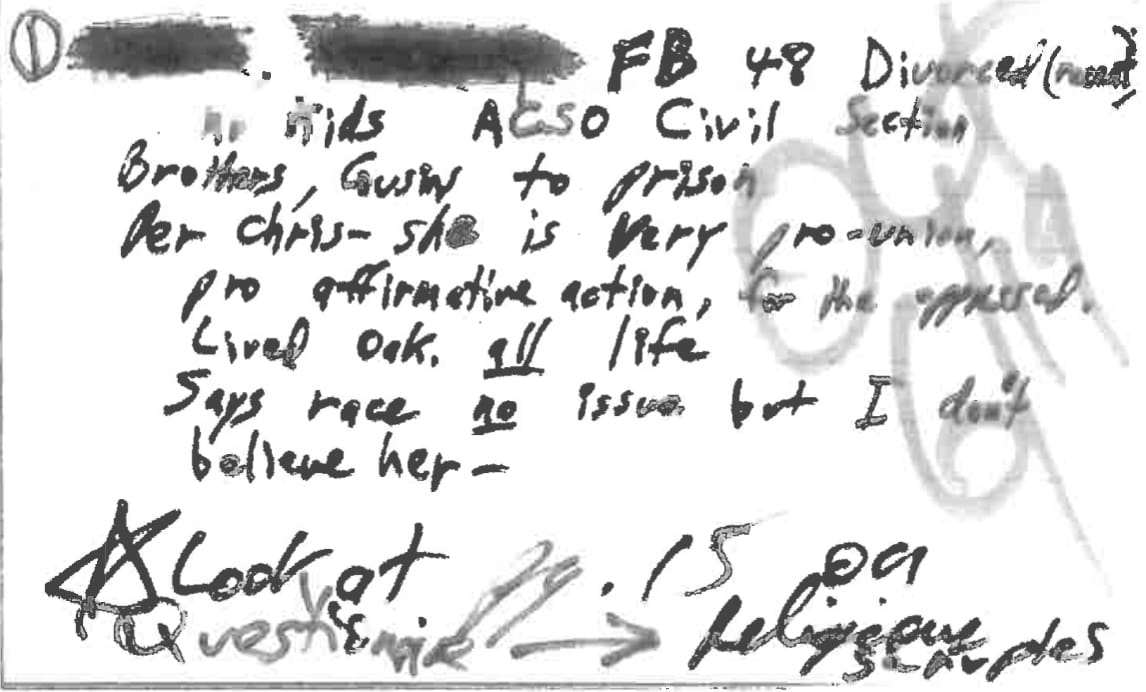
"Prosecutors' Note 1," in which "FB" was used as shorthand for "female, Black," was released by the DA's office Monday.
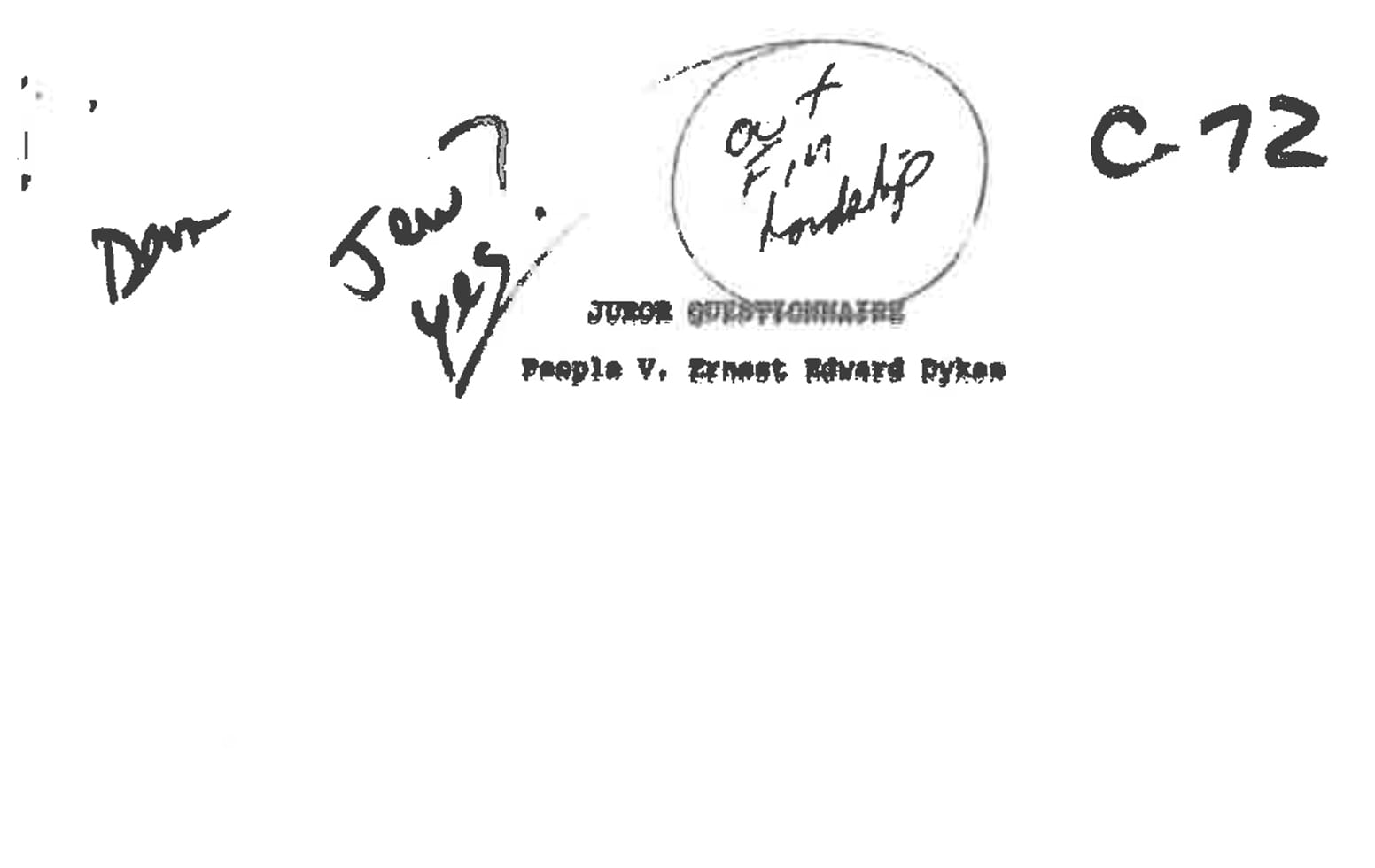
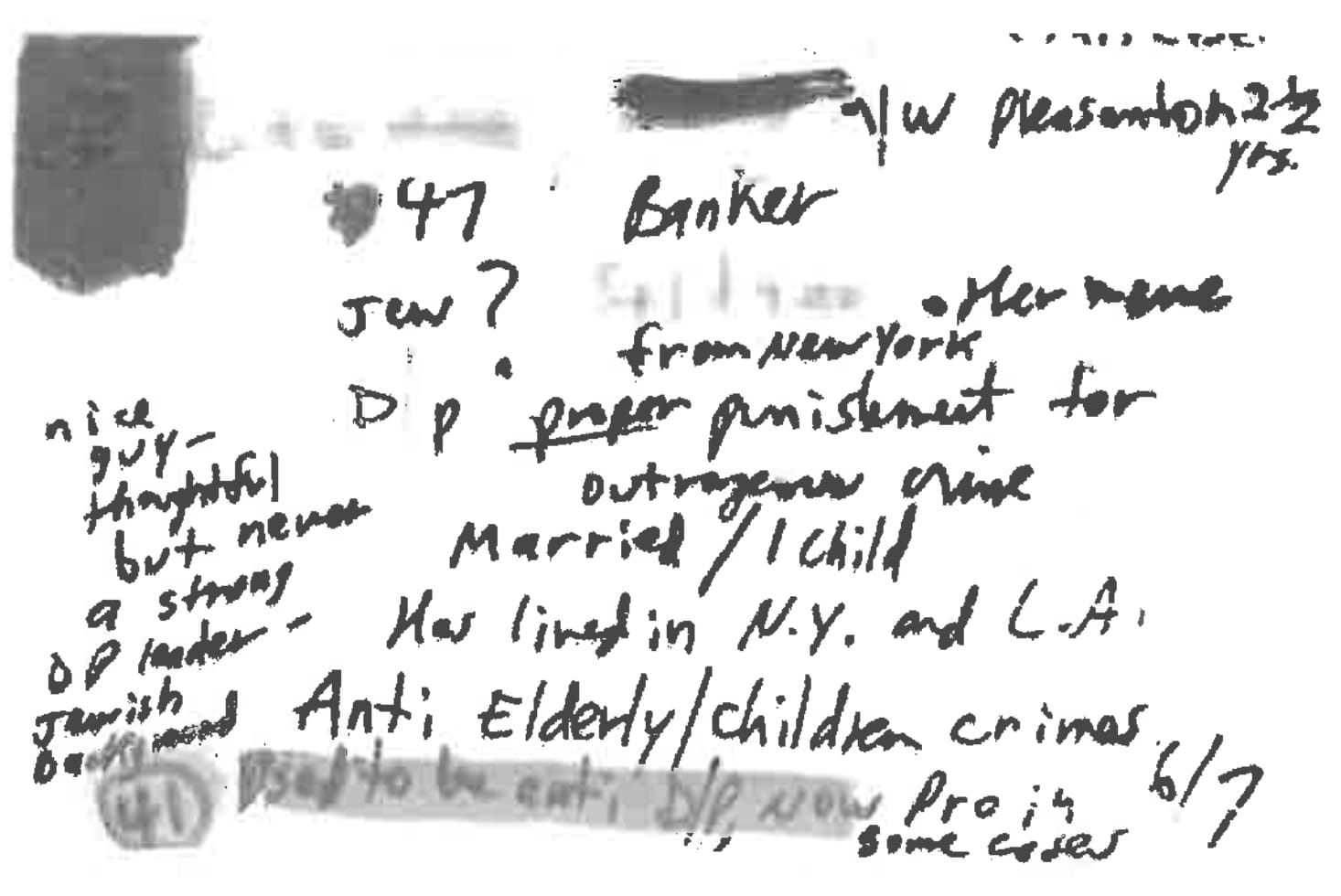
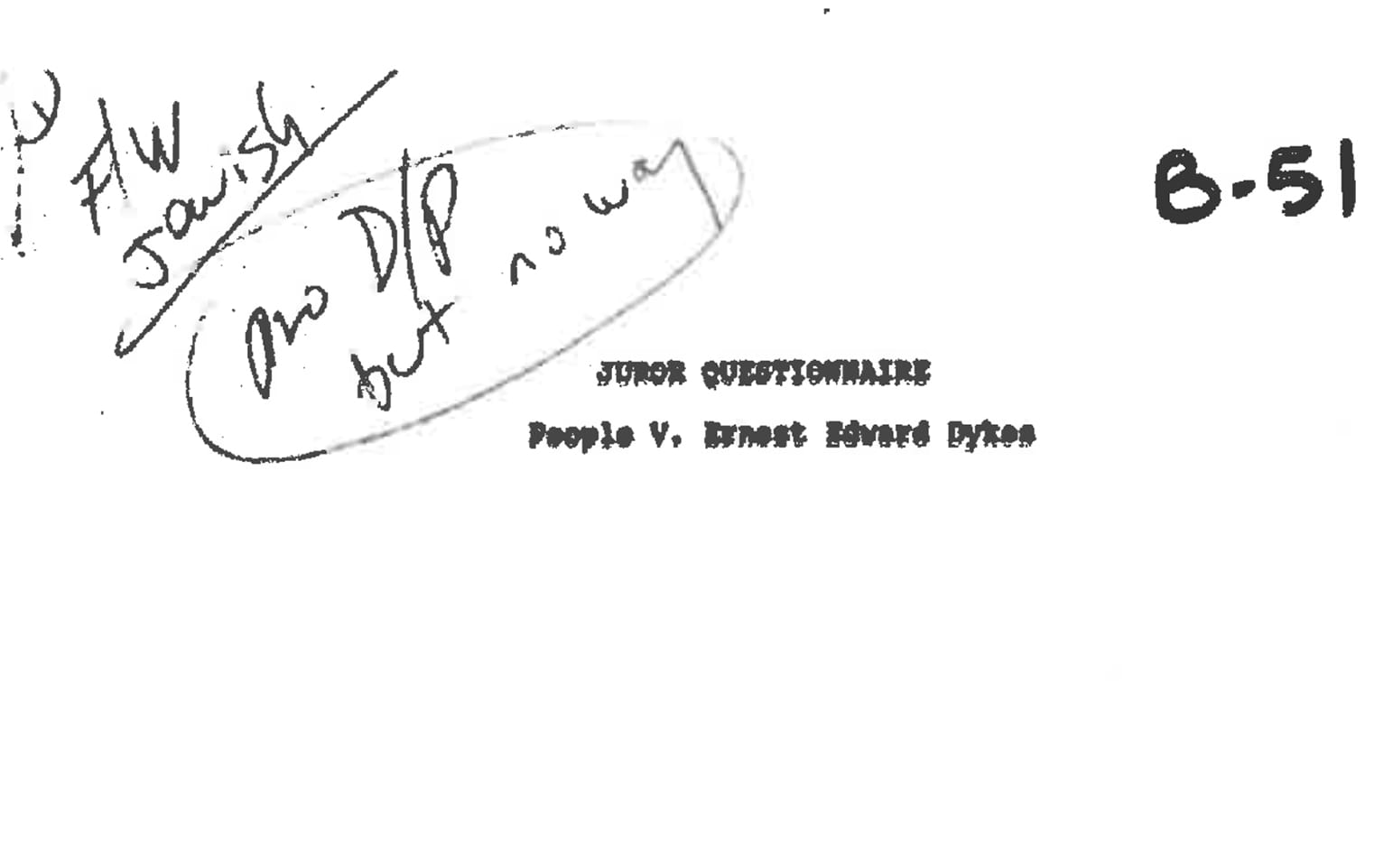
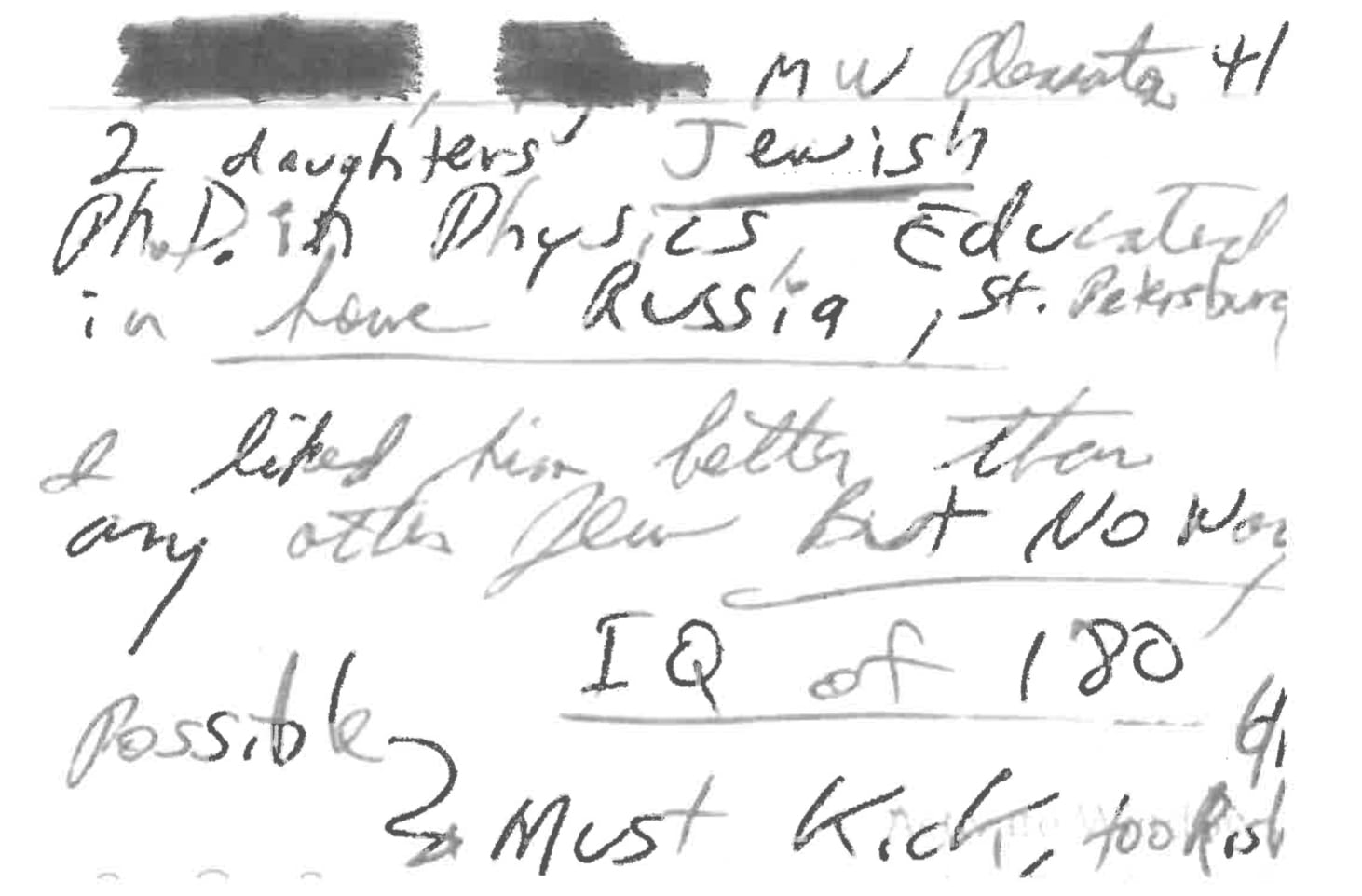
"Prosecutors' Note 2," in which notes indicated possible Jewish jurors in the Dykes case, were released by the DA's office Monday.
An unnamed deputy district attorney in Alameda County found the notes "recently" while reviewing the case of Ernest Dykes, who was convicted of murdering 9-year-old Lance Clark while robbing the boy's 70-year-old grandmother, Bernice Clark, in 1993.
Dykes, who was 20 at the time of the murder, was also convicted of the attempted murder of Bernice, who owned the apartment building where Dykes was living back then.
After his conviction in 1995, Dykes was sentenced to death. His sentence was upheld by the state Supreme Court on appeal in 2009. The case is now before Judge Chhabria on a federal appeal known as habeas corpus.
In an order Monday, Judge Chhabria wrote that the notes, "especially when considered in conjunction with evidence presented in other cases — constitute strong evidence that, in prior decades, prosecutors from the office were engaged in a pattern of serious misconduct, automatically excluding Jewish and African American jurors in death penalty cases."
What evidence Chhabria may have reviewed from other cases was unknown, as there was nothing readily available about it Monday in the public documents that make up Dykes' case records online.
KQED reported that "misconduct allegations in the county were the subject of a state Supreme Court hearing in 2005," but also said the court had rejected those claims.
In its article Monday about the death penalty review, the San Francisco Chronicle described allegations in 2003 from a former Alameda County prosecutor who said the "removal of Jews and African American women from death penalty juries had been standard practice in the office in 1987."
But a judge who held factfinding hearings on that matter later called the former prosecutor "dishonest," and his allegations failed to help overturn a related death penalty case, the Chronicle noted.
DA Pamela Price: Death penalty review "will take a long time"
In her remarks Monday, DA Pamela Price did not say how many prosecutors may have been involved in the notes identified so far or how many potential jurors may have been disqualified in the Dykes case due to possible discrimination.
She also did not specify any other cases by name in which potential misconduct had been identified aside from saying she was "aware of at least one" in which the defendant had been sentenced in 1984.
Price also shared no estimate as to how long the process to review all 35 death penalty cases might take.
"It will take a long time," she said. "Each case we will have to review individually."
Price said her office had been contacting the families of victims in the death penalty cases and meeting with them to explain the reason for the review.
One of those family members contacted The Scanner over the weekend to express her dismay about the news.
She said the call had caught her off guard and that she still didn't know what it meant.
"He needs to remain on death row," she said, of her relative's killer. "We still fear for our lives."
Executions have been barred in California, by order of Gov. Gavin Newsom, since 2019. No one has been executed in the state since 2006.
The Dykes case is set to return before Judge Chhabria on May 20 as the parties work toward a settlement.
The DA's office said anyone who has been directly impacted by a death penalty case in Alameda County should call 510-208-9555 or email Victim Witness Advocate Shawn Mitchell for information.


